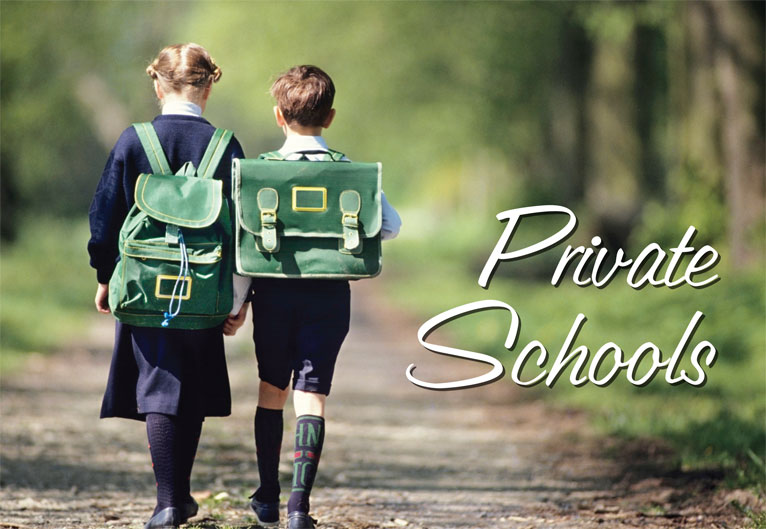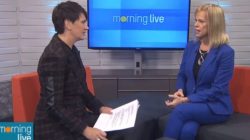Even before their children are born, parents start to think about the educational path they will take. In fact, how and where to educate a child is one of the biggest decisions parents make. And while in Ontario the public school system has a strong reputation for a quality education, the private school sector continues to thrive. Andrea Nair, M.A., CCC, Psychotherapist and Parenting Educator says there are many reasons why a parent might choose to send their children to a private school. “Parents send their children to private school because of any of the following: experiencing bullying at their current school, conflict with their teacher (and can’t get switched to a different one), a child’s out-of-control behaviour, being labelled with a learning disability or behaviour challenge, to educate their child within a particular religious or cultural dogma, to gain expertise in a particular field like arts or sports, a child’s prolonged sadness due to isolation or conflict with the others in the class, and because the child’s grades are suffering and the parents believe their child needs more time, support and attention from the teachers.” As well, she adds, some parents send their children to private school because of their social circles and an image they wish to have for themselves, and their children. For parents evaluating a private school choice, and which one to send them to, the following considerations are often cited:
1 Smaller class size
While the average public elementary school class size is 23 students or fewer (with over 90% at less than 20), there is some evidence that children prosper in even smaller class sizes, giving them the opportunity for more one on one interaction with their teachers. For children who need the extra stimulation, or extra challenge, this can be a big benefit as many private schools offer class sizes smaller than this. Nair agrees this is the top benefit. “There are many positive spin-offs because of this”. This includes better access to the teachers as well as to resources, and a smaller class community.
2 Speciality Education
Many private schools go outside the prescribed Ontario curriculum to accelerate or emphasize the fundamental subjects. This can include arts, academics, sports, or religious affiliations. The extracurricular activities offered are also normally a wider range, with more intensive training, which can benefit students who wish to focus in a particular field.
3 Learning Style
Private schools can offer alternatives to the provincially regulated standards of teaching and testing and for students who do not learn in a conventional manner this can be of huge benefit.
4 Resources
Many private schools have excellent funding and subsequently access to higher level technology, books, sporting equipment, field trips, travel opportunities and more. Their budgets are normally privately raised funds (and school fees of course) and hence can be used in a manner that the school chooses, versus being directed by government.
5 Transportation
Private schools often offer busing directly to their schools, which can be a benefit to parents for whom either a drive to school is inconvenient, or they are concerned about their children walking or taking public transit. Not all private schools offer transportation, and some charge extra fees for it, however.
6 Uniforms
The appeal of uniforms is strong for parents not wanting to deal with the budgetary and social stressors which come from children choosing their own clothing every day for school. Uniformity provides for ease of dressing as well as eliminating image concerns, which can start at a very young age.
7 Success Ratios
Private schools will often post their percentages of graduating students who go on to higher education. For some parents, this can be seen as a stronger guarantee that their child will continue with their studies and be of assistance to them in securing a more professional future.
8 Language Options
While the Canadian public school system guarantees all students will be exposed to core French, a private facility can offer more intensive French studies, as well as many other languages, and extra assistance to English as a Second Language (ESL) students as well.
9 On-site Daycare
For many families where both parents work, on-site daycare offers the convenience and seamless transition for the students to move from class to care, without arranging for transfers to outside facilities.
10 Sense of Community
The combination of a smaller class size, and the additional activities and programs which are typically offered in a private school can lend itself to a stronger sense of belonging, or community, for both students and parents. Many parents choose to send their children to their “legacy” school and continue to be involved in fundraising and school events.
When researching a private school, it’s recommended to not only talk to the administrators, but to arrange to meet with current or former students, as well as parents who have their children enrolled in the school, prior to making a significantly economic and potentially life-changing decision for your children. GL
This article first appeared in The Good Life and can be found at this link: http://www.goodlifemississauga.com/116-gl-2012/edu_125SE.html







